Greece
Historical Treasures, Idyllic Islands, and Culinary Delights
Welcome to Greece, a land of enchantment and allure, where retirees can immerse themselves in the Mediterranean magic. From the bustling streets of Athens to the idyllic islands of the Cyclades, Greece offers an array of destinations that cater to the preferences of people over 50. Let us embark on a journey through the most popular destinations in Greece, highlighting the top attractions and activities that will captivate discerning travelers.
Athens: Unveiling Ancient Splendors
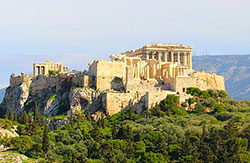
Photo by Alexander Hood / Pixabay |
Nestled in the heart of Greece, Athens, a city with an astonishing history dating back over 3,400 years, has been a beacon of civilization, democracy, and intellectual pursuit, making it one of the oldest and most revered cities on the planet. Explore the iconic Acropolis, where the Parthenon majestically overlooks the city. Visit the National Archaeological Museum, a treasure trove of ancient artifacts, providing a deeper understanding of Greece's rich past. |
| Take leisurely strolls in the National Gardens, and don't miss a visit to the Panathenaic Stadium, the birthplace of the modern Olympic Games. Delve into Greek mythology while wandering through the narrow streets of Plaka, a charming neighborhood filled with traditional tavernas and quaint shops. |
Mykonos: Whitewashed Beauty
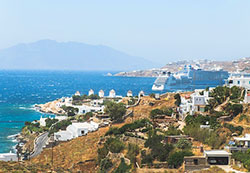
Photo by Jo Kassis / Pexels | Next, set sail for the captivating island of Mykonos, renowned for its charming white-washed buildings and vibrant nightlife. Stroll through the narrow streets of Mykonos Town, lined with boutique shops, art galleries, and picturesque cafes. Relax by the harbor and enjoy a delicious seafood meal while watching the sunset over the Aegean Sea. For those seeking cultural experiences, a visit to the Aegean Maritime Museum and the Church of Panagia Paraportiani is highly recommended. |
| Take a leisurely boat tour around the island's pristine beaches or embark on a day trip to the sacred island of Delos, an archaeological site of great historical significance. |
Santorini: Romance and Mesmerizing Views

Photo by Russel Yan / Pixabay | Continue your Greek escapade to the enchanting island of Santorini, renowned for its breathtaking sunsets and postcard-perfect landscapes. Explore the charming villages perched on the caldera cliffs, such as Oia and Fira, with their iconic white-washed buildings and blue-domed churches. Indulge in local cuisine at traditional tavernas, and sample the island's renowned wines at local wineries. Visit the Akrotiri archaeological site to witness the remains of an ancient Minoan city preserved by volcanic ash. |
| For a truly memorable experience, take a leisurely cruise around the caldera, where you can enjoy the stunning views, swim in hot springs, and savor a delightful barbecue dinner on board. |
Rhodes: Rich History and Beautiful Beaches
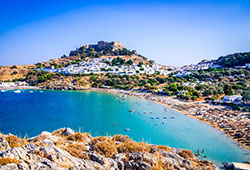
Photo by Elena / Adobe Stock |
The island of Rhodes, located in the Dodecanese archipelago, is a favorite among retirees due to its rich history and stunning coastline. Explore the medieval Old Town of Rhodes, a UNESCO World Heritage site, with its cobblestone streets, ancient walls, and impressive Palace of the Grand Master. Visit the Acropolis of Lindos, a hilltop archaeological site boasting panoramic views and the iconic Temple of Athena. |
| Enjoy leisurely days at the island's beautiful beaches, such as Faliraki and Tsambika, where you can soak up the sun and take refreshing dips in the crystal-clear waters. Don't miss the opportunity to visit the Valley of the Butterflies, a lush nature reserve home to a variety of colorful butterflies. |
Nafplio: Charming Seaside Retreat
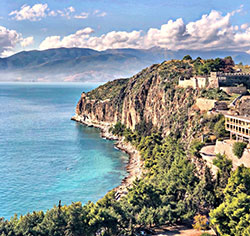
Photo by Despina Galani | Located on the Peloponnese peninsula, Nafplio is a picturesque coastal town that exudes charm and tranquility. Stroll through the narrow streets of the old town and admire the neoclassical architecture, vibrant squares, and charming boutiques. Visit the Palamidi Fortress, perched atop a hill, for breathtaking views of the town and the sea. Take leisurely walks along the waterfront promenade, indulge in delicious Greek cuisine at seaside tavernas, and relax on the sandy beaches of Karathona and Arvanitia. Take a 30 minute drive to explore the archaeological site of Ancient Mycenae, a UNESCO World Heritage site, and marvel at the remains of the ancient civilization. |
| |
Corfu: Idyllic Island Escape
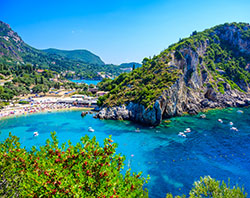
Photo by Simon Dannhauer | Corfu, the greenest of the Greek islands, offers retirees a serene and idyllic escape. Explore the UNESCO-listed Old Town of Corfu, with its narrow alleys, Venetian architecture, and charming squares. Discover the Achilleion Palace, a stunning neoclassical mansion surrounded by lush gardens, and learn about its connection to Greek mythology. Take leisurely drives through picturesque villages, such as Paleokastritsa and Kassiopi, and enjoy the island's diverse landscapes of olive groves, cypress forests, and sandy beaches. |
| Don't miss the opportunity to visit the Mon Repos Estate, a neoclassical palace surrounded by beautiful gardens and a favorite spot for leisurely walks. |
Crete: Mythical Wonders

Photo by lbrecht Fietz / Pixabay |
Our journey concludes on the largest Greek island, Crete, known for its rich mythology and diverse landscapes. Explore the ancient Palace of Knossos, the legendary home of King Minos and the labyrinth of the Minotaur. Discover the charming old town of Chania, with its Venetian harbor, narrow streets, and picturesque waterfront restaurants. |
| Immerse yourself in Cretan culture by visiting local markets and sampling traditional dishes, such as dakos and kalitsounia. Nature lovers will be captivated by the Samaria Gorge, a magnificent national park offering scenic hikes and breathtaking vistas.
|
Best Time to Visit:
The best time to visit Greece depends on your preferences and the activities you plan to engage in. Greece can get crowded during peak tourist seasons, especially in popular destinations. Consider traveling during shoulder seasons (spring or autumn) to avoid the crowds and enjoy more pleasant weather.
Here are some insights into the different seasons in Greece:
Spring (April to June): Spring is a beautiful time to visit Greece, as the weather is generally mild and pleasant. The landscapes are lush and blooming, making it an ideal time for exploring archaeological sites, hiking, and enjoying outdoor activities. The crowds are generally smaller compared to the peak summer months.
Summer (July to August): Summer is the peak tourist season in Greece, with warm to hot temperatures and crowded tourist areas. This is the best time for beach lovers and those who enjoy vibrant nightlife. The islands are at their liveliest, and you can fully indulge in swimming, sunbathing, and enjoying the festive atmosphere.
Autumn (September to October): Autumn is another fantastic time to visit Greece, as the temperatures are still pleasant, and the crowds begin to thin out. The sea is warm from the summer months, and you can still enjoy swimming. It's an excellent time for exploring historical sites and experiencing local culture, as many festivals and events take place during this season.
Winter (November to March): Winter in Greece is mild, but with cooler temperatures and more rainfall. It's an ideal time for visiting historical sites and cities like Athens, as the crowds are significantly reduced. However, some smaller islands and tourist facilities may have limited services or be closed during this period.
Travel Planning Tips:
Plan Ahead: Research and plan your itinerary in advance to make the most of your time in Greece. Consider the locations you want to visit, the duration of your stay, and any specific attractions or activities you don't want to miss.
Cash and Currency: While credit cards are widely accepted in most establishments, it's advisable to carry some cash for smaller businesses, remote areas, and small purchases. ATMs are readily available in cities and towns for cash withdrawals.
Travel Insurance: Ensure that you have comprehensive travel insurance that covers medical expenses, trip cancellation, and any potential emergencies. Review the policy details and know how to access medical assistance if needed.
Local Customs and Etiquette: Familiarize yourself with Greek customs and etiquette. Greeks are known for their warm hospitality, so it's appreciated to greet locals with a friendly "kalimera" (good morning) or "yasou" (hello). Dress modestly when visiting churches or religious sites, and respect local customs and traditions.
Stay Hydrated:Drink plenty of fluids and carry a water bottle especially during the summer months.
Sun Protection: Greece enjoys a sunny climate, so it's essential to protect yourself from the sun. Wear sunscreen, a hat, and sunglasses, and seek shade during the hottest hours of the day to prevent sunburn and dehydration.
Travel Documents: Ensure you have a valid passport with at least six months' validity remaining. Check if you require a visa to enter Greece, depending on your nationality, and ensure you have all the necessary travel documents.
Remember to check the latest travel advisories and guidelines from your country's government before your trip to Greece, as situations and requirements may change.
Accommodations:
When choosing an accommodation in Greece, it is important to consider your budget, your needs, and your preferences. If you want to experience Greek culture and hospitality, a B&B or or a small hotel may be a good option. If you need more space and privacy, an apartment or a villa may be a better choice.
Transportation:
Greece has a well-developed transportation network. Domestic flights are available for longer distances, while ferries and hydrofoils connect the islands. Public buses and trains are reliable for traveling within the mainland. Renting a car can be a convenient option for exploring remote areas.
- Domestic Flights: Greece has several airports throughout the mainland and islands, making domestic flights a convenient option for covering long distances quickly. Aegean Airlines and Olympic Air, are the major domestic airlines operating within Greece.
- Trains: Greece has an extensive railway network that connects major cities and towns on the mainland. Train travel is a scenic and comfortable option, especially for longer journeys. Train services are operated by TrainOSE, and they offer both regional and intercity routes.
- Ferries: Greece's extensive coastline and numerous islands make ferry travel a popular choice. Ferries connect the mainland with the islands, as well as island-to-island routes. Companies like Blue Star Ferries, Hellenic Seaways, and SeaJets offer regular ferry services. The speed and frequency of ferries may vary depending on the season and destination.
- Buses: Buses are a reliable and affordable mode of transportation in Greece. KTELis the main bus operator, providing services to various destinations, including cities, towns, and even remote areas. Buses are well-maintained, comfortable, and offer a convenient way to explore different regions of Greece.
- Rental Cars: Renting a car provides flexibility and freedom to explore Greece at your own pace. Major car rental companies operate in Greece, and you can find rental services at airports, cities, and popular tourist destinations. However, it's important to note that driving in some urban areas, particularly in Athens, can be challenging due to heavy traffic and limited parking.
- Taxis: Taxis are widely available in Greece, particularly in urban areas and tourist destinations. Taxis can be hailed on the street or found at designated taxi stands. It's advisable to ensure the taxi has a working meter or agree on the fare before starting the journey.
- Public Transportation:
Public buses and trams operate in larger cities like Athens and Thessaloniki, providing convenient transportation within urban areas. Athens, in particular, has an extensive metro system that connects different parts of the city.
When planning your transportation in Greece, consider factors such as the distance you need to travel, the locations you want to visit, and the level of convenience and flexibility you desire. It's also recommended to check schedules, book tickets in advance for popular routes during peak seasons, and be aware of any specific COVID-19 protocols or restrictions that may be in place.
Safety Tips:
- Safety Precautions:
Greece is generally a safe country for travelers. However, it's always wise to take basic safety precautions. Keep your belongings secure, be aware of your surroundings, and avoid displaying valuable items. Take care of your personal belongings, especially in crowded areas and tourist hotspots. Use reputable transportation services and stay in well-reviewed accommodations.
- Vaccinations: Check with your healthcare provider or travel clinic about recommended vaccinations before visiting Greece. Routine vaccines such as measles-mumps-rubella (MMR), diphtheria-tetanus-pertussis, and flu shots are generally advised. Depending on your travel plans and personal health, additional vaccines like hepatitis A and B may be recommended.
- Medical Facilities: Familiarize yourself with the location of medical facilities, clinics, and hospitals near your travel destinations in Greece. Keep a list of emergency contact numbers and addresses readily available.
- Prescription Medications:If you take prescription medications, ensure you have an ample supply for the duration of your trip. Carry them in their original packaging, along with copies of prescriptions, in case you need to refill or replace them while in Greece.
- Hygiene and Food Safety: Practice good hygiene by regularly washing your hands with soap and water, or using hand sanitizer when handwashing facilities are not available. Be cautious with food and water consumption, opting for bottled water and eating at reputable establishments. Peel fruits and vegetables, and avoid consuming undercooked or raw food.
- Sun Protection: Greece experiences high sun exposure, especially during the summer months. Protect yourself from the sun by wearing sunscreen (with a high SPF), a wide-brimmed hat, sunglasses, and lightweight clothing. Seek shade during the hottest hours of the day to avoid heatstroke and sunburn.
- Stay Hydrated: Maintain adequate hydration by drinking plenty of water, especially in warmer months or when participating in outdoor activities. Carry a refillable water bottle and stay hydrated throughout the day.
- COVID-19 Precautions: Stay informed about the latest COVID-19 guidelines and restrictions in Greece. Follow local regulations, wear masks where required, practice social distancing, and maintain good hand hygiene. Stay updated on travel advisories and requirements from your home country as well.
- Emergency Preparedness: Familiarize yourself with emergency procedures and know the location of emergency exits and assembly points in your accommodations. Stay informed about weather conditions and potential natural hazards, especially if you plan outdoor activities or visit remote areas.
| |
 Photo by Jimmy Teoh
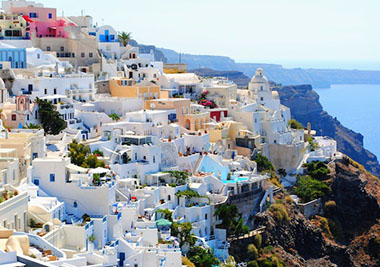 Photo Pixaby
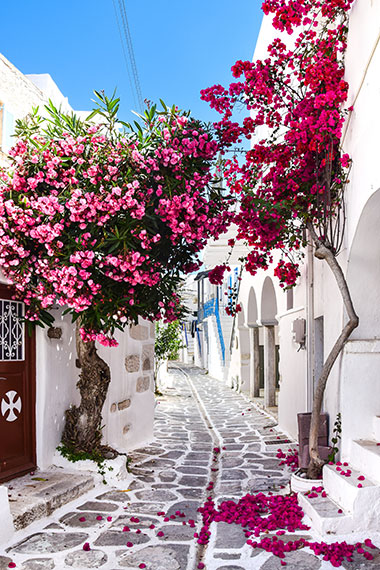 Photo by Axp Photography
|
 Photo by Jimmy Teoh
Photo by Jimmy Teoh Photo Pixaby
Photo Pixaby Photo by Axp Photography
Photo by Axp Photography